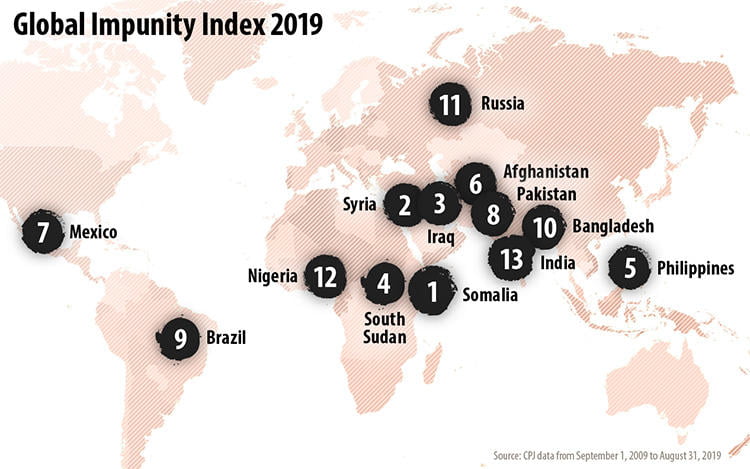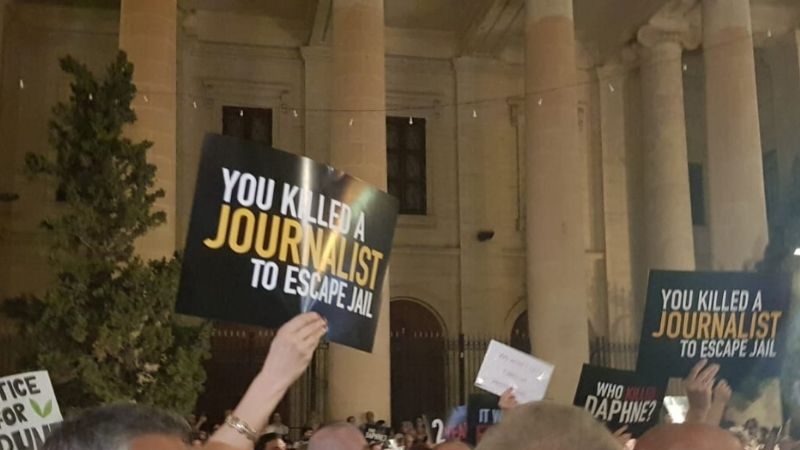Some 318 journalists were murdered in retaliation for their stories over the past 10 years, and 86 per cent of these cases remain unsolved, according to a Committee to Protect Journalists report.
The CPJ’s annual Global Impunity Index highlights countries where journalists are murdered and their killers go free. Somalia topped the list for the fifth consecutive year for being the worst country in which to prosecute the killing of journalists, while Mexico was listed as 2019’s deadliest country for journalists.
“The impunity we have witnessed in these countries year after year, and the knowledge that authorities take little action against those who attack the press, cripples the ability of journalists around the world to do their job,” CPJ Advocacy Director Courtney Radsch said.
During the 10-year period ending 31 August, 318 journalists were murdered in retaliation for their work and, in 86% of those cases, no perpetrators were successfully prosecuted.
Last year, CPJ recorded complete impunity in 85% of cases – a small improvement over the 90% recorded two years ago. The index includes nations with five or more unsolved cases of murdered journalists.

CPJ impunity map 2019
CPJ’s research has shown that attacks against journalists by armed militant groups, criminal cartels and gangs are on the increase.
“Democratic governments cannot stand silent in the face of impunity if they want to be seen as supporting press freedom,” Radsch said. “It is imperative that journalists and their families receive the justice they deserve, and that world leaders demand accountability.”
Malta was mentioned in the report as an example where “unchecked anti-press violence” spread to a country that used to be considered “relatively safe”. The CPJ pointed out that the car bomb that killed Daphne Caruana Galizia, and the murder of Slovakian journalist Ján Kuciak, “put journalists in the EU on notice that covering crime and corruption can be deadly”.
Slovakia has indicted four people for Kuciak’s murder, including the suspected mastermind, but “authorities there and in Malta have failed to achieve convictions in either case” the CPJ said.
The killing of Washington Post journalist Jamal Khashoggi in the Saudi consulate in Istanbul was another clear example of how the “one murder of a journalist can have a chilling effect and that when the perpetrators escape justice, the intimidation is amplified,” the CPJ said. His murder sent out a clear message to critics of Saudi Arabia “that there is no safe harbour”.
The 13 countries on the index account for more than three quarters (222) of the global total of unsolved murders of journalists for the 10 year period and have been listed multiple times since the list was first compiled in 2008.
They “represent a mix of conflict-ridden regions and more stable countries where criminal groups, politicians, government officials, and other powerful actors resort to violence to silence critical and investigative reporting”.
Unchecked corruption, ineffective institutions, and lack of political will to pursue robust investigations were all factors behind impunity, the CPJ said.
The Impunity Index is released annually to mark the International Day to End Impunity for Crimes against Journalists, which falls on 2 November. Colombia is the only country to fall off the index since last year.












